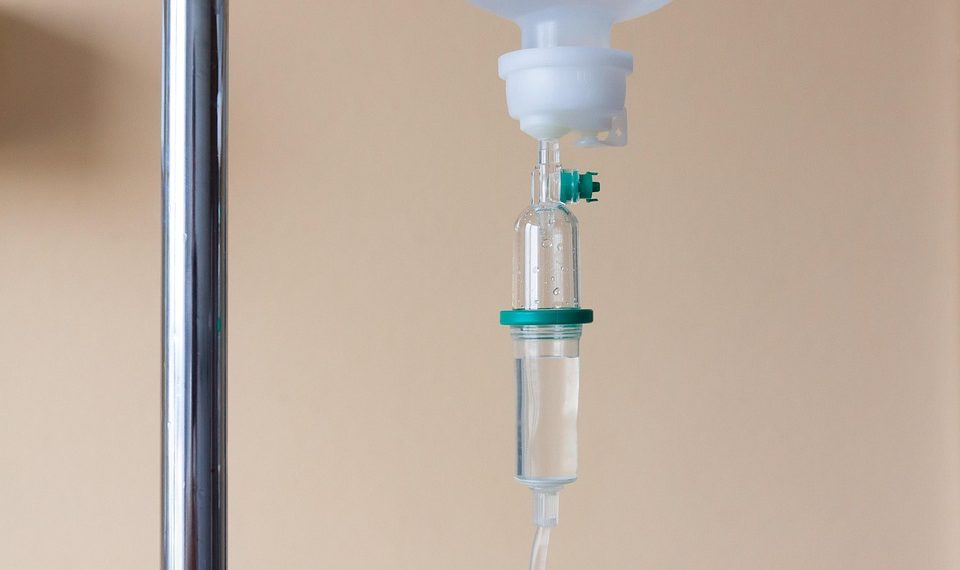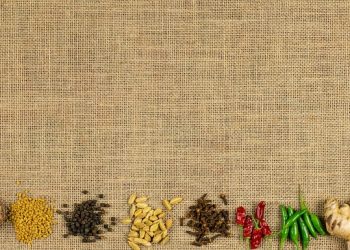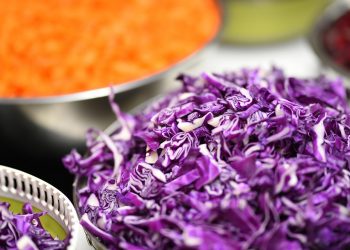Contents
- 7 Ways Antibiotics and Gut Health Are Linked
- How antibiotics and gut health interact (a quick map)
- 1) Antibiotics can reduce microbial diversity
- 2) Antibiotics can change metabolism and weight
- 3) Antibiotics can weaken the gut barrier
- 4) Antibiotics can disrupt immune education
- 5) Antibiotics can change neurotransmitter production
- 6) Antibiotics can encourage opportunistic infections
- 7) Antibiotics can lead to antibiotic resistance within your gut
- Practical, research-backed steps to protect your gut
- Evidence you can trust
- Real-world examples — stories that teach
- When antibiotics are necessary — how to minimize harm
- Foods and habits that support recovery
- When to see a professional
- A few myths busted
- Closing notes from me
7 Ways Antibiotics and Gut Health Are Linked
antibiotics and gut health tell a story your doctor didn’t teach you. (1) It’s a relationship that can heal an infection and, at the same time, rattle the ecosystem inside your belly. Let me walk you through this with honesty, warmth, and a bit of tough love. This matters to you because your digestion, mood, immunity, and even skin can shift after a round of pills. Understanding these connections gives you power — to protect, restore, and live better.
Intro: What I mean by antibiotics and gut health
Antibiotics are drugs that kill or stop bacteria. Your gut is home to trillions of microbes that help digest food, educate your immune system, and keep harmful invaders in check. When antibiotics do their job, they don’t always spare the good. That balance between attacker and guardian is what I mean by antibiotics and gut health — and it’s central to your well-being.
Why this matters to your life
You might think antibiotics are simple fixers. Often they are. But every prescription nudges the microbial community inside you. That nudge can be temporary, or it can leave lasting footprints. If you care about energy, weight, allergies, mental clarity, or chronic inflammation, pay attention. This is about more than digestion. It’s about your life.
How antibiotics and gut health interact (a quick map)
Let’s be practical. Here are seven ways antibiotics and gut health are linked — the real-world effects, not fluff.
1) Antibiotics can reduce microbial diversity
When you take antibiotics and gut health takes a hit, the first casualty is diversity. Diversity means resilience. A diverse microbiome keeps opportunistic bugs in check. A course of broad-spectrum antibiotics often wipes out many species — the good, the neutral, even some rare helpers.
- Loss of species can reduce short-chain fatty acids like butyrate, which feed colon cells.
- Reduced diversity can make you more vulnerable to infections like Clostridioides difficile.
- The recovery of diversity is slow for some people, especially after repeated courses.
This matters because diversity is the baseline of a healthy gut. Lose it, and the whole system gets louder — more inflammation, more instability.
2) Antibiotics can change metabolism and weight
There’s a stubborn link between antibiotics and gut health that touches metabolism. Studies show changes in microbial communities can shift how your body extracts calories and stores fat.
- In some cases, early-life antibiotic exposure is associated with higher risk of childhood obesity.
- For adults, repeated antibiotic use may nudge metabolism, affecting blood sugar and weight regulation.
This isn’t doom talk. It’s information. If you’ve been on many antibiotics, it’s worth considering that your microbial mix may be playing a role in stubborn weight or energy swings.
3) Antibiotics can weaken the gut barrier
One of the gut’s jobs is to keep bad stuff out of your bloodstream. The tight junctions between gut cells are maintained by signals from microbes and their metabolites. When antibiotics and gut health collide, those signals can falter.
- A weakened barrier means more inflammation because fragments of bacteria or food particles leak through.
- This low-level inflammation shows up as bloating, joint aches, skin flares, or brain fog.
Repair is possible, but it takes time and targeted steps — not just wishful thinking.
4) Antibiotics can disrupt immune education
Your immune system spends childhood learning who’s friend and who’s foe — but this schooling continues throughout life. Microbes are teachers. When antibiotics alter the class roster, the immune system can get mixed messages.
- Antibiotics and gut health influence how the immune system responds to allergens and pathogens.
- Disrupted microbial signals can contribute to autoimmune tendencies or increased allergies.
Getting your immune system back in balance means rebuilding that microbial classroom with thoughtful nutrition and, sometimes, supportive therapies.
5) Antibiotics can change neurotransmitter production
Yes, your gut talks to your brain. The gut produces or helps produce important neurotransmitters. Alter the gut, and the conversation changes.
- Serotonin, GABA, and other neurochemicals get influenced by microbial activity.
- Many people notice shifts in mood, anxiety, or sleep quality after antibiotic use.
If you’ve felt off emotionally after medication, that gut-brain link could be a part of why.
6) Antibiotics can encourage opportunistic infections
When the good microbes are thinned, opportunists jump in. This is a classic problem with antibiotics and gut health.
- C. difficile infection is the most notorious: severe, sometimes life-threatening.
- Yeast overgrowth and small intestinal bacterial overgrowth (SIBO) can also follow.
Prevention and early recognition matter. Trust your instincts if something feels wrong after antibiotics.
7) Antibiotics can lead to antibiotic resistance within your gut
This is a public health concern and a personal one. Your gut can become a reservoir for resistant bacteria.
- Repeated exposure can select for resistant strains that live quietly until they cause trouble.
- Resistant organisms can pass genes to other microbes, spreading resistance.
Use antibiotics wisely. They are powerful tools. Use them when you must, not as a first resort.
Practical, research-backed steps to protect your gut
Knowledge without action is just anxiety. Here’s what to do, with evidence where it matters.
Before you take antibiotics
- Ask whether antibiotics are necessary. Many infections are viral and won’t respond. Ask your clinician to explain the reason.
- If antibiotics are warranted, ask if a narrow-spectrum option exists that targets the likely pathogen rather than the whole microbiome. That choice can limit collateral damage.
During a course of antibiotics
- Focus on food. A fiber-rich diet feeds resilient microbes. Eat vegetables, legumes, whole grains, nuts, and seeds.
- Stay hydrated and rest. Your body heals better when you slow down.
- Consider probiotic support. Some trials show that certain probiotic strains reduce antibiotic-associated diarrhea and help restore function. Saccharomyces boulardii and Lactobacillus rhamnosus GG are among the better-studied options. Talk to your provider about timing and choice.
After antibiotics — rebuild with purpose
- Bring back diversity slowly. Aim for a range of whole foods and fermented foods like plain yogurt, kefir, sauerkraut, or kimchi if they suit you.
- Try prebiotic foods. These feed beneficial bacteria: garlic, onions, leeks, asparagus, bananas, and oats.
- If symptoms persist — severe bloating, ongoing diarrhea, or brain fog — get evaluated. Tests like stool PCR, breath testing for SIBO, and targeted therapy can help.
Evidence you can trust
I rely on science and clinical sense. Here are reputable sources if you want to read deeper:
- Centers for Disease Control and Prevention — guidance on antibiotic use and resistance: https://www.cdc.gov/antibiotic-use/index.html
- National Institutes of Health — studies and reviews on the microbiome: https://www.nih.gov/news-events/nih-research-matters/microbiome
- Harvard T.H. Chan School of Public Health — practical advice on diet and gut health: https://www.hsph.harvard.edu/nutritionsource/digestive-health/
Real-world examples — stories that teach
I’ll be frank: I’ve seen patients come in after multiple antibiotic courses who felt frazzled, bloated, and anxious. One woman had chronic sinus infections and took antibiotics repeatedly. Her gut lost diversity; her migraines worsened. We paused the cycle, addressed underlying triggers, rebuilt her diet, and introduced targeted probiotics. Within months, she reported fewer headaches, steadier mood, and better digestion.
These aren’t miracle tales. They’re consistent outcomes when you respect the microbial community and choose therapies thoughtfully.
When antibiotics are necessary — how to minimize harm
There are times they’re lifesaving. You should never skip antibiotics when they’re the right call. But you can still reduce harm.
- Ask about targeted options and shorter durations supported by data.
- Combine with gut-supporting measures: food, prebiotics, and perhaps specific probiotics.
- Follow up. If symptoms persist beyond the expected recovery window, seek evaluation.
Foods and habits that support recovery
Here’s a practical list to help your microbiome rebound.
- Eat a diversity of plants — aim for different colors across the week.
- Include fermented foods if tolerated.
- Prioritize fiber-rich whole foods over processed options.
- Limit unnecessary sugar and refined carbs that feed bad actors.
- Sleep well. Restorative sleep supports immunity and microbial balance.
- Manage stress. Chronic stress reshapes the gut; practices like breathwork, walking, and community help.
When to see a professional
See your clinician if you experience:
- Severe abdominal pain, persistent fever, or bloody stool.
- Ongoing diarrhea lasting more than a week after antibiotics.
- New or worsening neurologic symptoms like confusion or severe headaches.
- Any signs of systemic infection.
Your doctor can order appropriate tests and guide targeted therapies.
Simple strategies that work — a checklist
- Question the need for antibiotics; don’t accept them as default.
- Favor narrow-spectrum drugs when appropriate.
- Support your gut with food, prebiotics, and evidence-backed probiotics.
- Rebuild diversity with a plant-forward diet and fermented foods.
- Seek evaluation for persistent symptoms.
A few myths busted
- Myth: All antibiotics are the same for the gut. False. Spectrum and duration matter.
- Myth: Probiotics fix everything. False. They help in specific scenarios, but rebuilding diversity and diet is central.
- Myth: Symptoms must be immediate to be related. False. Effects can be delayed or subtle.
Small decisions, big consequences
Every pill matters. Every food choice matters. The story of antibiotics and gut health isn’t about blame — it’s about choices. Cut unnecessary use, support recovery, and make empowered decisions about your body.
Closing notes from me
You’re the steward of your body. Respect the tiny lives inside you; they repay you with resilience. When antibiotics are needed, use them wisely. And when they’re done, take steps to rebuild. The result is often quieter digestion, steadier moods, and better overall health.
Bottom Line
Antibiotics and gut health are tightly connected: they can save your life and reshape your inner ecosystem. Make thoughtful choices, support recovery with diet and targeted probiotics, and seek help when symptoms persist. Your microbiome deserves care — and so do you.
FAQ (short and useful)
Q: Should I take probiotics during antibiotics?
A: Some probiotics can reduce antibiotic-associated diarrhea. Discuss timing and strain with your clinician; Saccharomyces boulardii and Lactobacillus rhamnosus GG have supportive evidence.
Q: How long does it take for the gut to recover after antibiotics?
A: It varies. Some people rebound in weeks; others take months. Repeated courses slow recovery.
Q: Can antibiotic damage be permanent?
A: In some cases, repeated or broad-spectrum use leads to long-lasting shifts. But many people recover significantly with targeted rebuilding strategies.
Q: Do fermented foods act like probiotics?
A: Fermented foods can introduce beneficial microbes and support diversity, but they’re different from specific probiotic strains used in clinical trials.
If you want, I’ll walk you through a day-by-day plan to protect and rebuild your gut after antibiotics. You deserve a gut that works for you — not against you.
Get Your FREE Natural Health Guide!
Subscribe now and receive our exclusive ebook packed with natural health tips, practical wellness advice, and easy lifestyle changes — delivered straight to your inbox.














